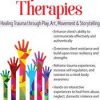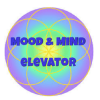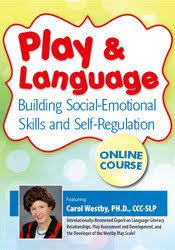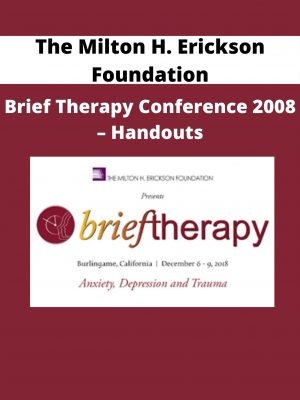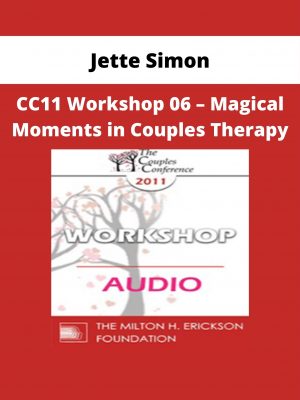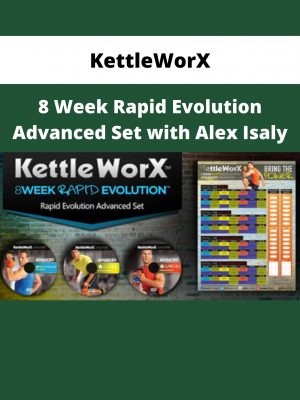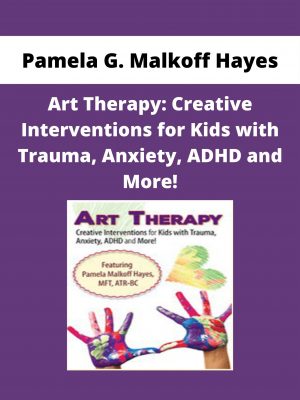Carol Westby, Ph.D. – Play, Language
$199 Original price was: $199.$56Current price is: $56.
Shopping Instructions:
- DISCOUNT 15% : SHOP15
- Product Delivery: Within 1 – 12 hours after purchase.
Available for Pre-Order. This product will be available within a few days.
Carol Westby, Ph.D. – Play, Language
Vocabulary and enunciation are the most common (and sometimes standardized) ways to decipher a child’s speech or language skills… but shouldn’t we be looking at the full story? How a child interacts with other children or in the classroom, can shed light on a child’s social-emotional development which can lead to language deficits.
Cognitive, social, emotional, linguistic and motor components are blended together by one universal activity — PLAY! And without it, developing children may encounter intellectual, social, emotional and physical harm.
Join internationally-renowned expert on play assessment and language-literacy, Carol Westby, PhD, CCC-SLP in our NEW online course, Play & Language, as she teaches you firsthand, how to effectively use her Westby Play Scale — a tool that offers a way to evaluate all young children’s (birth-5 years) symbolic play skills. Supported by 40 years of evidence-based research, she will help you discover current play theories and personal narrative skills to improve children’s language, literacy, cognition, social-emotional skills, self-regulation, self-identity and problem-solving.
Through videos and case examples you will learn interventions using playful practices and fictional stories or life stories for children with learning disabilities, autism, and socio-economic/cultural variations influencing their early language, play, and literacy development.
Walk away with advanced techniques to:
- Integrate the role of play in self-regulation.
- Develop playful practice approaches to emergent literacy.
- Assess fictional and personal narratives, considering cultural influences.
- Expand children’s ability to make inferences by relating emotions and mental states to events.
- And so much more!
Increase literacy, academic success, creativity and social skills with strategies specifically developed for Play & Language in this new online course!
Discover current play theories, the development of the four dimensions of play in young children (birth-5 years), and how play can improve language, cognition, social-emotional skills, self-regulation and literacy. Learn current intervention strategies for children with language learning disabilities, autism, and socio-economic/cultural variations:
- Advance phonological skills and comprehension for emergent literacy using playful practice
- Encourage the interactions essential for social-emotional development
- Facilitate children’s understanding of the temporal, cause-effect, and social relationships that exist in the world and that are critical for comprehension of social and academic interactions
- Stimulate language for interpersonal communication and abstract reasoning
- Nurture children’s ability to interpret and respond appropriately to the needs, desires, and roles of others and to use this knowledge to infer the thoughts of others
- Promote children’s ability to organize and monitor their own behavior so they can become independent, self-motivated learners
Walk away with therapeutic interventions you can begin using immediately.
Learn the roles of autobiographical memory, personal narratives, fictional narratives and life stories in social interactions, self-regulation and academic performance. Walk away with strategies to develop children’s narrative skills to improve their social-emotional skills, self-regulation, self-identity and problem-solving:
- Reminiscing to promote autobiographical memory
- Vocabulary for mental state/emotion words and the syntactic patterns needed to express relationships between events and mental states/emotions
- How settings influence characters and events in stories
- Building narrative plots
- How physical and psychological attributes of characters in stories affect their nature and behaviors
- Supporting students in making narrative inferences
Would you like to receive Carol Westby, Ph.D. – Play, Language ?
Interact and collaborate with other professionals in the online community through chat boards and online forums. Participants love sharing ideas, asking questions and networking with other practitioners!
Complete your CE tests online at the completion of each module, with instant access to your CE certificates – 12+ CE hours.
Related products
HEALTH & MEDICAL
HEALTH & MEDICAL
HEALTH & MEDICAL
HEALTH & MEDICAL
CC11 Workshop 06 – Magical Moments in Couples Therapy – Jette Simon
HEALTH & MEDICAL
KettleWorX – 8 Week Rapid Evolution Advanced Set with Alex Isaly
HEALTH & MEDICAL

